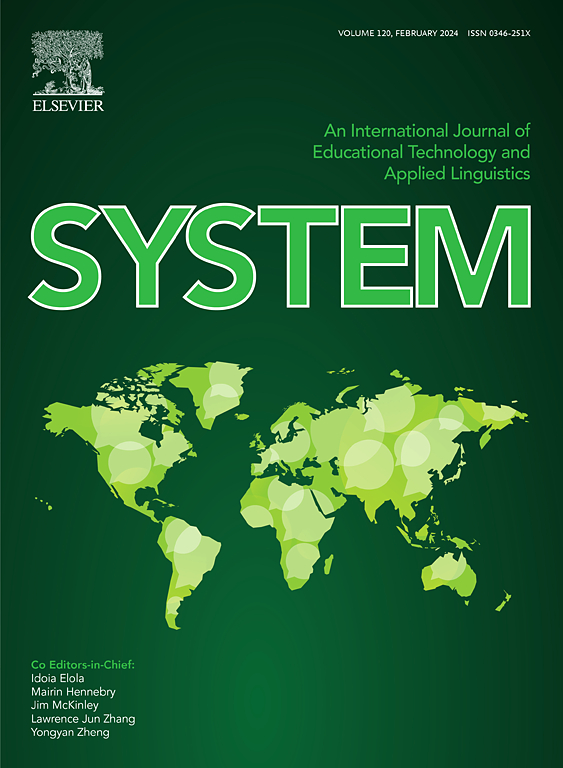Effects of dietary L-glutamate and L-aspartate supplementation on growth performance, severity of diarrhea, intestinal barrier integrity, and fecal microbiota of weaned piglets challenged with F18 enterotoxigenic Escherichia coli
IF 6.5
1区 农林科学
Q1 Agricultural and Biological Sciences
引用次数: 0
Abstract
L-Glutamate and L-aspartate are functional amino acids that play pivotal roles in the cellular metabolic pathways of swine enterocytes. Therefore, this study aimed to investigate the effects of dietary L-glutamate and L-aspartate on growth performance, diarrhea severity, intestinal barrier integrity, and fecal microbiota of weaned piglets challenged with F18 enterotoxigenic Escherichia coli (ETEC). Weaned piglets were randomly assigned to seven dietary treatments, including unchallenged and ETEC-challenged controls, amino acid-supplemented groups, and an antibiotic control, to assess their responses to ETEC challenge. Supplementation with 1% L-glutamate or 2% L-aspartate enhanced growth performance, with significantly greater (P < 0.05) average daily weight gain and gain-to-feed ratio compared with the positive control group from d 0 to d 5 post-inoculation. Pigs fed with 1% or 2% L-aspartate had reduced (P < 0.05) diarrhea severity in ETEC-challenged pigs compared with the positive control group. The 1% L-aspartate supplementation also supported intestinal structure by increasing (P < 0.05) duodenal villi height and ileal villi width compared with carbadox supplementation. Additionally, 1% L-glutamate supplementation significantly improved (P < 0.05) resilience in ETEC-challenged pigs by reducing fecal shedding of β-hemolysin-producing bacteria compared with the positive control group on d 14 post-inoculation. Moreover, 1% L-aspartate supplementation promoted intestinal barrier integrity by significantly up-regulated (P < 0.05) the expression of ileal OCDN and ileal ZO-1 compared with the positive control group on d 14 post-inoculation. Interestingly, 2% L-aspartate supplementation altered the intestinal mucosa by down-regulating (P < 0.05) the expression of jejunal CLDN-1, while up-regulating (P < 0.05) the expression of ileal CLDN-1 compared with the negative control group on d 14 post-inoculation. Furthermore, L-glutamate supplementation significantly changed proportions of Firmicutes and Bacteroidota and showed the trend for enrichment in beneficial bacterial genera such as Bifidobacterium and Megasphaera in ETEC-infected pigs by d 14 post-inoculation. Supplementation with L-glutamate or L-aspartate promoted growth performance, supported gut health, and enhanced disease resistance in weaned pigs challenged with F18 ETEC. During the weaning period, L-glutamate or L-aspartate could potentially be considered conditionally essential amino acids, helping to alleviate weaning complications and reduce the need for antibiotic use in swine farming.饲粮中添加l -谷氨酸和l -天冬氨酸对F18产肠毒素大肠杆菌攻毒断奶仔猪生长性能、腹泻严重程度、肠道屏障完整性和粪便微生物群的影响
谷氨酸和天冬氨酸是在猪肠细胞代谢途径中起关键作用的功能性氨基酸。因此,本试验旨在研究饲粮中添加l -谷氨酸和l -天冬氨酸对F18产肠毒素大肠杆菌(ETEC)致毒断奶仔猪生长性能、腹泻严重程度、肠道屏障完整性和粪便微生物群的影响。试验将断奶仔猪随机分为7组饲粮处理,包括未攻毒组和ETEC攻毒组、氨基酸补充组和抗生素对照组,以评估仔猪对ETEC攻毒的反应。接种后第0 ~ 5天,添加1% l -谷氨酸或2% l -天冬氨酸提高了生长性能,平均日增重和料重比显著高于阳性对照组(P < 0.05)。与阳性对照组相比,饲粮中添加1%或2% l -天冬氨酸降低了ecc感染猪的腹泻严重程度(P < 0.05)。与卡巴多克斯相比,添加1% l -天冬氨酸还增加了十二指肠绒毛高度和回肠绒毛宽度(P < 0.05),从而支持肠道结构。此外,在接种后第14天,与阳性对照组相比,添加1%的l -谷氨酸显著降低了β-溶血素产生菌的粪便排出量,显著提高了ecc感染猪的恢复能力(P < 0.05)。此外,在接种后第14天,与阳性对照组相比,添加1% l -天冬氨酸显著上调了回肠OCDN和回肠ZO-1的表达(P < 0.05),促进了肠道屏障的完整性。有趣的是,在接种后第14天,与阴性对照组相比,添加2% l -天冬氨酸可下调空肠CLDN-1的表达(P < 0.05),上调回肠CLDN-1的表达(P < 0.05),从而改变肠黏膜。此外,补充l -谷氨酸显著改变了大肠杆菌感染猪的厚壁菌门和拟杆菌门比例,并在接种后第14天显示出双歧杆菌和巨孢子菌等有益菌属的富集趋势。在饲喂F18 ETEC的断奶仔猪中,补充l -谷氨酸或l -天冬氨酸可促进生长性能、支持肠道健康并增强抗病能力。在断奶期间,l -谷氨酸或l -天冬氨酸可能被认为是有条件必需氨基酸,有助于减轻断奶并发症,减少养猪业对抗生素的使用。
本文章由计算机程序翻译,如有差异,请以英文原文为准。
求助全文
约1分钟内获得全文
求助全文
来源期刊

Journal of Animal Science and Biotechnology
AGRICULTURE, DAIRY & ANIMAL SCIENCE-
CiteScore
9.90
自引率
2.90%
发文量
822
审稿时长
17 weeks
期刊介绍:
Journal of Animal Science and Biotechnology is an open access, peer-reviewed journal that encompasses all aspects of animal science and biotechnology. That includes domestic animal production, animal genetics and breeding, animal reproduction and physiology, animal nutrition and biochemistry, feed processing technology and bioevaluation, animal biotechnology, and meat science.
 求助内容:
求助内容: 应助结果提醒方式:
应助结果提醒方式:


